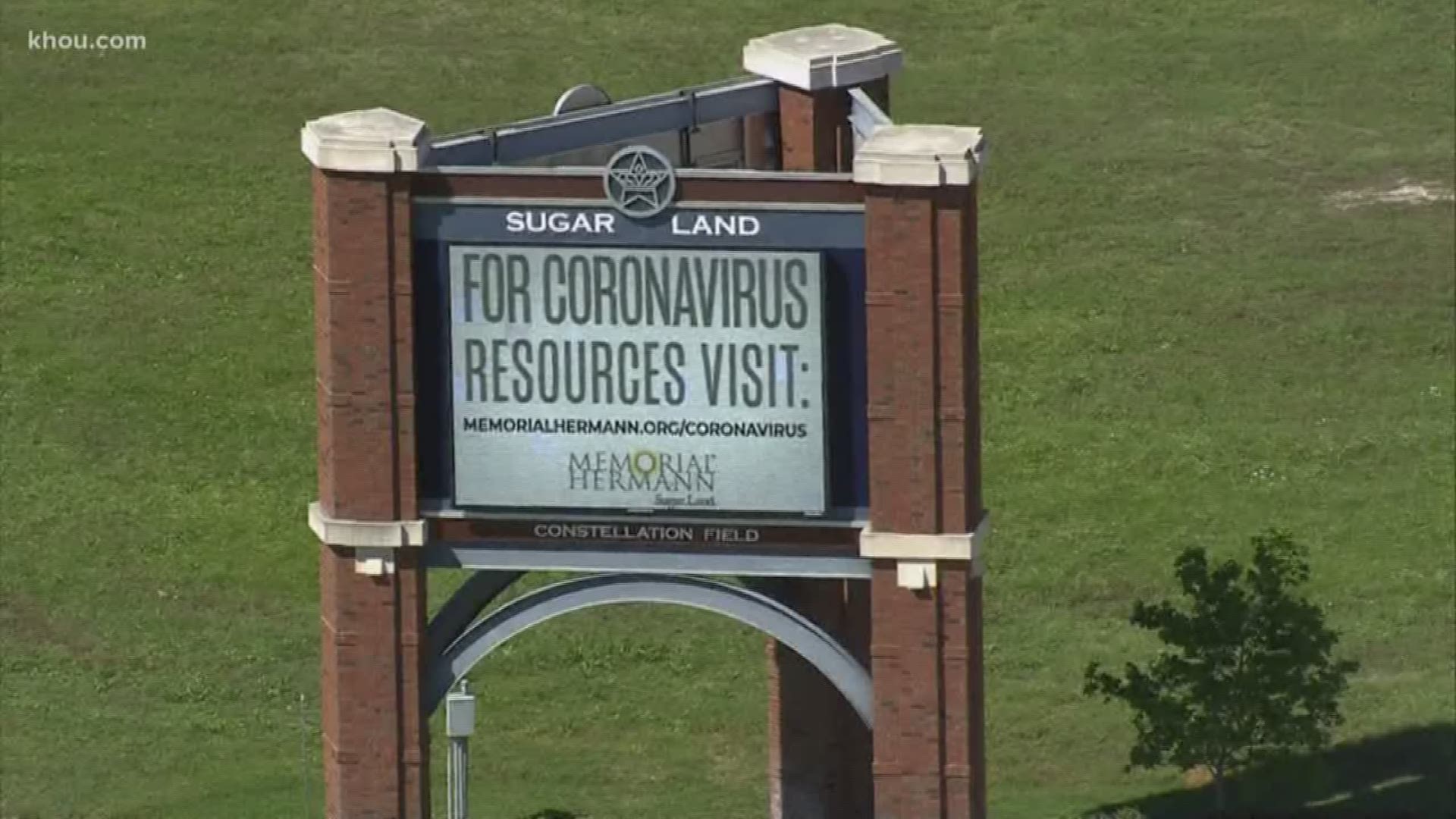SUGAR LAND, Texas — The Sugar Land Skeeters announced that Constellation Field will serve as a drop-off site for personal protective equipment to be donated to Memorial Hermann.
Beginning Wednesday, people can donate PPE at Constellation Field by visiting the ticket office at the front of the stadium where they’ll receive further instruction on how to donate the equipment.
People can donate PPE at Constellation Field from 10 a.m. to 4 p.m. from Monday through Friday, starting on April 1.
Memorial Hermann is accepting the following equipment:
- Alcohol wipes
- Bleach wipes
- Face shields
- Isolation gowns
- Medical grade N95 masks
- Sanitation wipes
- Sanitizer with CDC requirement of 60 percent or higher
- Shoe and boot covers
- Surgical masks
Donated items should be unused and unopened. All items will be inspected before distributing to care delivery sites within the Memorial Hermann system.
Members of the community interested in donating are encouraged to continue to practice social distancing when dropping off items.
Memorial Hermann has a steady supply of personal protective equipment for its healthcare workers, and donations will help maintain that steady supply.
MORE HELP
Coronavirus symptoms
The symptoms of coronavirus can be similar to the flu or a bad cold. Symptoms include a fever, cough and shortness of breath, according to the Centers for Disease Control. Some patients also have nausea, body aches, headaches and stomach issues. Losing your sense of taste and/or smell can also be an early warning sign.
Most healthy people will have mild symptoms. A study of more than 72,000 patients by the Centers for Disease Control in China showed 80 percent of the cases there were mild.
But infections can cause pneumonia, severe acute respiratory syndrome, kidney failure and even death, according to the World Health Organization. Older people with underlying health conditions are most at risk for becoming seriously ill. However, U.S. experts are seeing a significant number of younger people being hospitalized, including some in ICU.
The CDC believes symptoms may appear anywhere from two to 14 days after being exposed.
Human coronaviruses are usually spread through...
- The air by coughing or sneezing
- Close personal contact, such as touching or shaking hands
- Touching an object or surface with the virus on it, then touching your mouth, nose or eyes before washing your hands.
Help stop the spread of coronavirus
- Stay home when you are sick.
- Eat and sleep separately from your family members
- Use different utensils and dishes
- Cover your cough or sneeze with your arm, not your hand.
- If you use a tissue, throw it in the trash.
- Follow social distancing
Lower your risk
- Wash your hands often with soap and water for at least 20 seconds. If soap and water are not available, use an alcohol-based hand sanitizer.
- Avoid touching your eyes, nose, and mouth with unwashed hands.
- Avoid close contact with people who are sick.
- Clean and disinfect frequently touched objects and surfaces.
- If you are 60 or over and have an underlying health condition such as cardiovascular disease, diabetes or respiratory illnesses like asthma or COPD, the World Health Organization advises you to try to avoid crowds or places where you might interact with people who are sick.
Get complete coverage of the coronavirus by texting 'FACTS' to 713-526-1111.

